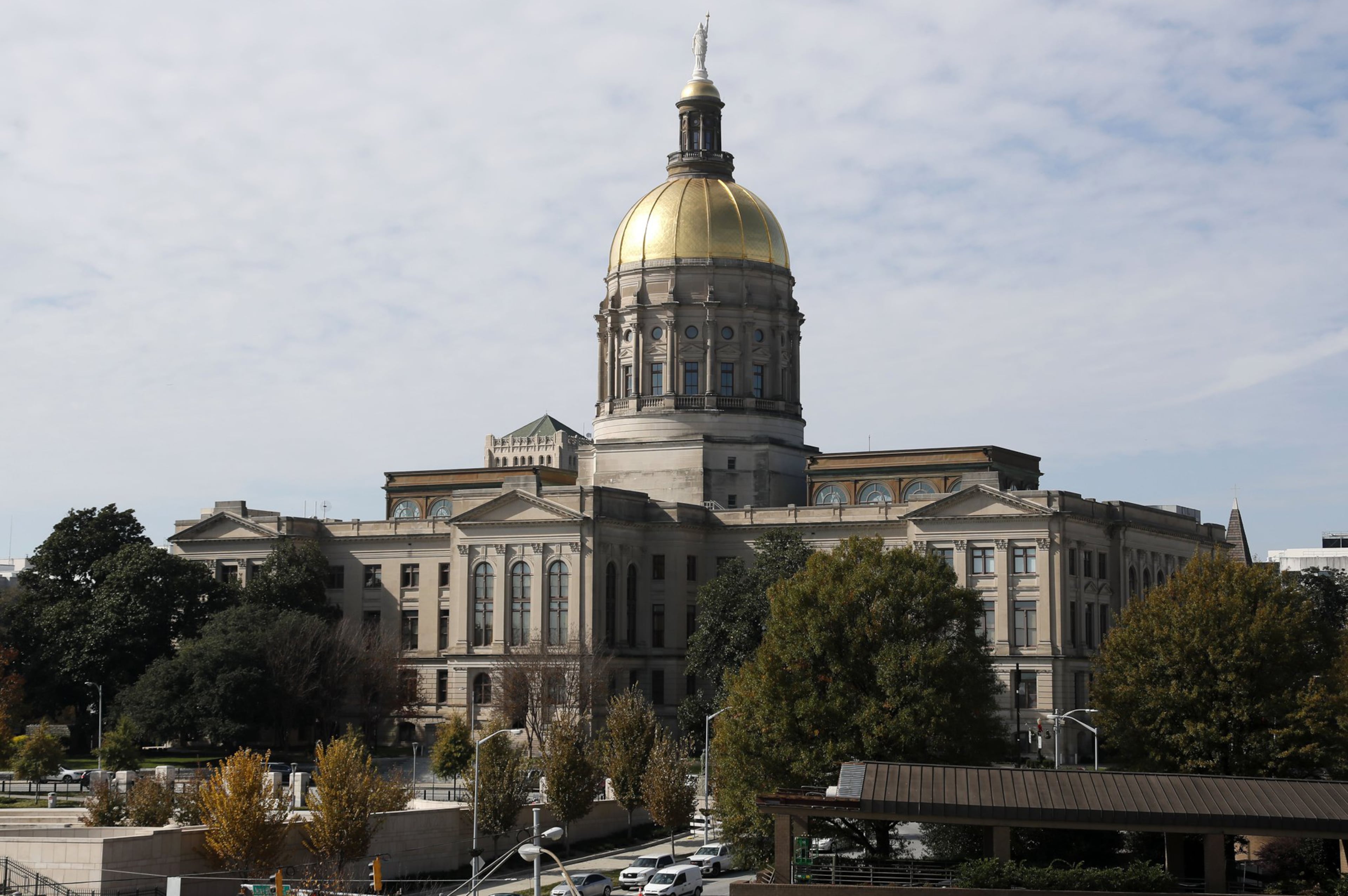Georgia lawmakers start work on record $30.2 billion budget

Gov. Brian Kemp raised a few eyebrows at the Capitol last week when he proposed a $3 billion increase in spending over the current state budget.
His $30.2 billion plan includes pay raises and bonuses for teachers, school staff and state employees, a refund for income tax payers, $600 million for new prisons, and hundreds of millions more for health care and mental health programs.
Kemp, who faces stiff Republican and Democratic opposition for reelection this year, seemed to include a little something for everyone in the 412-page document.
This week, the governor and his agency heads get a chance to sell it to lawmakers.
Legislators returned from the long Martin Luther King Jr. holiday weekend and dove into Kemp’s proposals starting Tuesday morning.
“We’ve got a lot of good things to talk about this year,” Kemp told a joint meeting of the House and Senate Appropriations committees. “I have never been more optimistic about out state.”
Kemp will be followed Tuesday by his chief economist, who will give legislators an outlook on the state’s economy, which will have to be strong over the next 18 months to pay for the record spending.
Next will come nearly three-dozen state agency leaders who will explain what it all means and how they will spend the money.
The information sessions are important to members of the budget committees because being a legislator is a part-time job. While House Appropriations Chairman Terry England, R-Auburn, and Senate Appropriations Chairman Blake Tillery, R-Vidalia, pretty much live the budget year-round, most lawmakers do not and generally have a lot of questions.
Over the next few months the budget committees will decide which of Kemp’s proposals get a green light and make it into the budget, and they also will likely add a few of their own.
Two years ago at this point, Kemp was asking for spending cuts because economists were worried a recession was around the corner. It was, but not because of the business cycle. COVID-19 hit the state in March, forcing the General Assembly to suspend its session for a few months and the economy to shut down.
But sales and income tax collections have been on the rise since mid-2020, after the economy reopened. The record income produced a $3.7 billion state surplus in the fiscal year that ended June 30, and collections have continued to soar as the state’s economy recovered.
That has allowed Kemp to draw up an almost dream budget for a candidate during a reelection year.
His proposal includes $5,000 salary increases for state employees to cut down on high turnover rates; $2,000 pay raises for teachers; bonuses for teachers and state employees in the budget for fiscal 2022, which ends June 30; income tax refunds worth $1.6 billion; and the first cost-of-living raise for state retirees in more than a decade.
The pay raises for teachers and state workers alone would cost more than $900 million a year.
The governor is also seeking new funding to reduce a persistent backlog at the GBI crime lab, plus hundreds of millions of dollars more for k-12 schools, higher education and health care programs.
Lawmakers had cut k-12 and college funding when they feared a pandemic recession. Kemp’s plan would restore that lost funding in the budget, costing about $650 million a year.
Kemp also wants to spend $600 million to buy a prison and build another. He said that would allow the state to close four of its older and most dangerous prisons.
The state would also spend $76 million moving department staffers out of the troubled 2 Peachtree St. tower to Capitol Hill and renovating a building for them.
The governor requested $11.6 million to design a training center and provide training for the electric-vehicle industry, part of a deal with Rivian to locate a $5 billion plant east of Atlanta. The total package for Rivian in the budget, including land, is $125 million.
BUDGET HIGHLIGHTS
Gov. Brian Kemp’s proposal includes:
- $5,000 salary increases for state employees to cut down on high turnover rates;
-$2,000 pay raises for teachers; bonuses for teachers and state employees in the budget for fiscal 2022, which ends June 30;
- Income tax refunds worth $1.6 billion
- The first cost-of-living raise for state retirees in more than a decade.



